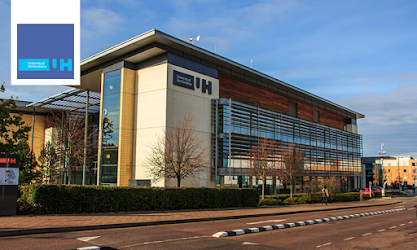Germany Expands Visa Quota for Skilled Indian Professionals to 90,000 Annually: What This Means for Indian Talent
Germany Expands Visa Quota for Skilled Indian Professionals to 90,000 Annually: What This Means for Indian Talent
In an exciting development for Indian professionals seeking global opportunities, Germany has announced a significant increase in its visa quota for skilled Indian workers, from 20,000 to an impressive 90,000 annually. Prime Minister Narendra Modi revealed this update during his speech at the 18th Asia-Pacific Conference of German Business 2024, emphasizing the mutual benefits of this step for both nations. The announcement also coincides with new educational collaborations between India and Germany, paving the way for further academic exchange and skill-building initiatives.
The Significance of Germany’s Growing Demand for Indian Professionals
Germany, a leading economy in Europe, is experiencing a considerable demand for skilled workers across various industries. With a shortage of talent in sectors like engineering, IT, healthcare, and advanced manufacturing, Germany has turned its focus to the highly skilled Indian workforce. Last year alone, the number of Indian professionals working in Germany surged by 23,000, with Indians now forming the largest group of foreign students in German universities. The increased visa quota represents an opportunity for Indian professionals to contribute to and benefit from Germany’s thriving economy, all while gaining international exposure and experience.
German Chancellor Olaf Scholz expressed his enthusiasm for the skilled talent pool from India, emphasizing that "the talent is a welcome addition to our labor market.” His commitment to making the visa process more efficient, through digitalization and user-friendly initiatives, underlines Germany’s desire to attract global talent and streamline the immigration process.
Enhanced Visa Processes and Germany’s Focus on Skilled Migration
Chancellor Scholz highlighted Germany’s proactive approach to reducing irregular migration while facilitating easier access for skilled workers. By digitizing the visa application process and accelerating approvals, Germany aims to ensure that the country remains a prime destination for talent from around the world. Scholz clarified, however, that while Germany welcomes skilled workers, it will also strengthen its measures to control unauthorized migration. This balanced approach signals Germany’s openness to high-skilled professionals, providing a clear and fair path to work opportunities for those who qualify.
Education and Skill Development Partnerships Between India and Germany
Germany and India are also strengthening their educational ties, fostering collaborations that will benefit students and professionals alike. PM Modi announced a new Memorandum of Understanding (MoU) between IIT Chennai and Dresden University, a well-known institution in Germany. This MoU will introduce a Dual Degree program that enables students to earn credentials from both institutions, preparing them for the global job market. Such initiatives align with Germany’s goal of deepening academic and vocational exchanges with India, particularly in fields like engineering, information technology, and sustainable technology management.
Modi emphasized the importance of these people-to-people connections, noting that "today, we have decided to work together in skills development and vocational education.” Through these collaborative programs, students from both countries will gain invaluable knowledge, skills, and cultural insights, creating a pipeline of qualified professionals who understand both Indian and German industry demands.
Benefits of the Increased Quota for Indian Professionals
For skilled Indian professionals, Germany’s decision to raise the visa quota brings several advantages:
Broader Opportunities: The expanded visa quota allows more skilled professionals to explore career opportunities in Germany, benefiting from its advanced industries, robust economy, and commitment to innovation.
Improved Work-Life Balance: Germany is known for its strong emphasis on work-life balance, high standards of living, and excellent healthcare and social security benefits, making it an appealing destination for workers looking for quality of life.
Professional Growth and Global Exposure: Working in Germany provides Indian professionals with the chance to develop their skills in an international environment, exposing them to cutting-edge technologies and practices that they can later bring back to India.
Faster and More Efficient Visa Processing: Germany’s commitment to digitizing the visa process means that applicants can expect a more user-friendly experience, with shorter wait times and faster approvals.
Final Thoughts: A New Era of India-Germany Collaboration
This announcement marks a new era in the relationship between India and Germany, as both nations work together to build an ecosystem that supports talent mobility, skill-building, and academic partnerships. The expanded visa quota for Indian professionals, along with the IIT Chennai and Dresden University MoU, underscores Germany’s appreciation for India’s skilled workforce and the mutual respect shared by both countries. With these initiatives, Indian professionals and students have more pathways to contribute to and benefit from Germany’s dynamic economic landscape, bringing together two nations with a shared vision for progress and innovation.
For Indian talent looking to make a mark on the global stage, Germany’s door has just opened wider.




Comments
Post a Comment